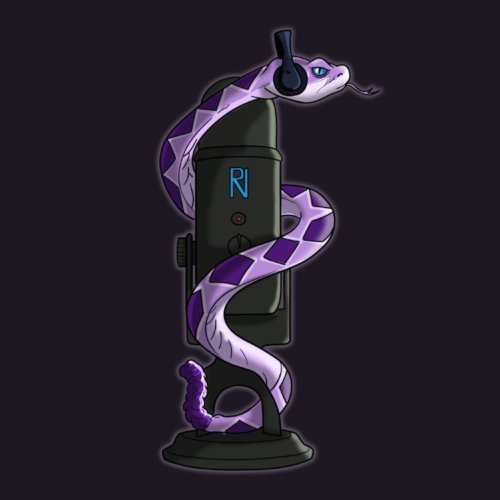EP. 98 MENTORING SERIES: Drs. Paneez Khoury and Parker Ruhl Structures need to change for women in medicine to have a fair shot
Laurie McGraw is speaking with Inspiring Women Drs. Paneez Khoury and Parker Ruhl, physicians, researchers, public servants who work at the National Institute of Allergy and Infectious Diseases. They are also friends and peer mentors which they view as a professional must have given the dearth of women leaders.
In this episode, we discussed the “leaky pipeline” issue given that women medical students have eclipsed the 50% mark several years ago. Paneez and Parker are clear – the system is not set up so that women have a fair shot ascend to leadership. While there are things women can do to bridge the gender gap in medicine through self-advocacy, taking leadership training opportunities and cultivating mentorship relationships, until the structures are changed. The fertility window directly overlaps with the time periods needed to secure funding, when you are first becoming scientifically independent. If those who set up these structures had to think about their fertility window – it just wouldn’t be set up this way. Changing the process should NOT mean lowering the requirements, just adjusting not having to do these all at the same time during that important fertility window which creates sometimes impossible choices.
Paneez and Parker also discuss how they have partnered aiming to impact culture change, a long slog without a clear path. Finding ways to level the playing field for women in medicine, being heard, having representation on editorial boards, hiring and promotion committees, and looking forward to that day when a woman physician can say she is pregnant and not have to hear…Oh, I’m sorry….. are just some of the things that they are pushing for. They have an action oriented approach and rely on the support of each other to “be the change”.
Dr. Paneez Khoury BIO:
Paneez Khoury, M.D. is an associate research physician at NIAID. She has been involved in translational research in eosinophilic disorders since joining the Human Eosinophil Section in 2012.
She received her M.D. from University of Illinois College of Medicine in Chicago. She completed an internal medicine residency at the Ohio State University followed by a fellowship in allergy and clinical immunology at NIH. She also holds a master’s of health sciences from Duke University. She is board certified in internal medicine and allergy/immunology and is a fellow of the American Academy of Allergy, Asthma and Immunology (AAAAI).
At NIH, she serves as the chair of the Scientific Review Committee of the Laboratory of Parasitic Diseases. She sits on the graduate medical education (GME) committee, including the policy subcommittee, and is a member of the staff clinician council. Her external committee activities include involvement in the food allergy and eosinophilic disorders committee, the program directors assembly, and the leadership institute of AAAAI . She serves on the board of the International Eosinophil Society (IES) and is the social media chair for the society.
Dr. Parker Ruhl BIO:
Dr. Parker Ruhl is an Associate Research Physician in the Physiology Unit of the Laboratory of Malaria and Vector Research (LMVR), National Institute of Allergy and Infectious Diseases with a joint appointment in the Pulmonary Branch, National Heart, Lung, and Blood Institute (NHLBI). Dr. Ruhl serves on the NIH Pulmonary Consult Service and routinely sees patients in the NIH Sickle Cell Program. In the Physiology Unit, LMVR, Dr. Ruhl leads clinical research efforts within a translational research group focused on the impact of genetic variants of globin proteins, affecting both alpha and beta globin, on vascular function in human physiology and in disease states such sickle cell disease and malaria.
Dr. Ruhl is active in the professional community. She serves as Chair of the NIH Staff Clinician Council and Chair of the Staff Clinician Professional Development Committee, which serve to support physician professional development within the NIH Intramural Research Program. She serves as Vice President and an executive board member of the Metropolitan DC Thoracic Society. Dr. Ruhl joined the Office of Intramural Research (OIR) as a Senior Advisor to Dr. Michael Gottesman, Deputy Director of Intramural Research (DDIR) in 2022 and is currently working on several matters related to the NIH Staff Clinician community. Dr. Ruhl supports Dr. Janice Lee, Deputy Director of Clinical Research (DDICR) in performing the Staff Clinician title designation review process. Dr. Ruhl has worked closely Dr. Carl Hashimoto, Director of Faculty Development, OIR, to broaden access for Staff Clinicians to professional development opportunities across all ICs within the NIH Intramural Research Program.
Dr. Ruhl attended the University of Virginia School of Medicine and completed internal medicine training in the Osler Medical Residency at the Johns Hopkins Hospital. She completed a combined fellowship in critical care medicine at the NIH Clinical Center and pulmonary medicine at the Johns Hopkins Hospital and received a Master’s of Health Sciences from the Duke University School of Medicine.


































